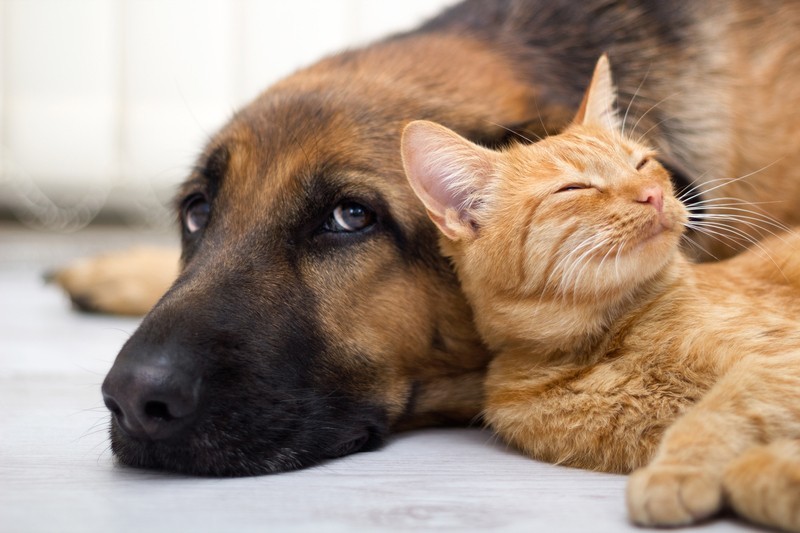A study conducted at Ball State University surveyed pet owners regarding their personalities in tandem with their pet ownership. In general, the results showed that people truly believe that their own personalities are reflected in the pets they keep. For example, cat owners saw themselves as being more independent while dog owners described themselves as being friendly.
Psychology Today offered this scientific assessment in three points of interest:
-
Dog people are more extroverted
Yes, studies confirm our general cultural beliefs: One, conducted by Samuel D. Gosling and others, looked at the Big Five personality traits in self-identified cat and dog people. Their findings confirmed the results of other studies—that dog people were more extraverted and less neurotic than the cat ones. Makes me wonder: Did cat people make Susan Cain’s Quiet a bestseller? But this study also showed that the feline group was more open to experience than canine folk.
- Cat people score higher in intelligence and are more intellectually curious
That’s what a study of 600 college students by Denise Guastello and colleagues found, while also re-confirming earlier findings that dog lovers are more outgoing and lively. This suggests that you want your realtor to be a dog person for sure. But those preferring felines—while more introverted—are more sensitive and open-minded. Additionally, this study did not find them to be more neurotic. They also tend to be more non-conformist—perhaps echoing the independence for which cats are famous—and score higher on intelligence tests. (Does that mean my shift to the cat camp means I'm getting smarter? I hope so.)
This study also found that the motives for having a pet were different for cat and dog aficionados—38% of dog lovers were looking for companionship, while 45.6% of cat lovers wanted affection.
- The pet you identify with may reflect your view of the world
Working from the proposition that “people prefer pets that behave in a way that complements their own personalities,” Beatrice Alba and Nick Haslam hypothesized that dog people preferred “having pets that are submissive to them” and that, therefore, this group should score higher on personality characteristics associated with dominance. They tested for Social Dominance Orientation (SDO), interpersonal dominance, competitiveness, and narcissism. SDO is an ideological stance, a belief that there is a hierarchy in the world among people and groups.
Want to further explore the psychological elements of cat and dog personalities and ownership? Check out the article from Psychology Today. And you will feel more comfortable and reinforced about your own situation and pet.










